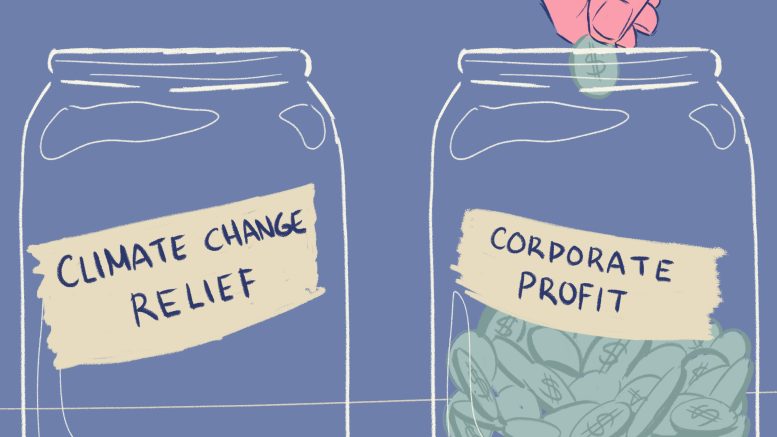In an effort to encourage climate-conscious habits, the City of Vancouver implemented mandatory minimum fees for some single-use items — 25 cents for single-use beverage cups and 15 cents for paper bags, effective Jan. 1. Although many cities have already placed bans on plastic bags, the 25-cent fee on single-use beverage cups is the first of its kind in Canada.
For a single person, the new fees amount to a minimum 40-cent increase on a takeout meal and drink. For a family of four, assuming only a single bag is used, that amounts to a minimum increase of $1.15.
While the move may seem prudent given the recent bouts of extreme weather, there is one glaring problem: businesses keep the fees for themselves. This means that for every customer who graces the doorsteps of restaurants like McDonald’s, franchise owners will pocket extra cash. Considering how many consumers visit these restaurants daily, the profits could amount to hundreds per day.
The new fees demonstrate that, when it comes to climate action, responsibility has been placed on citizens rather than businesses. Consumers have no choice but to pay the mandatory fees — unless they bring their own reusable cups, which in many establishments is not an option due to COVID-19 protocols — but businesses are free to choose where the money goes. While consumers undoubtedly have a duty to do their part to help the planet, they shouldn’t be shelling out cash directly into the pockets of business owners under the guise of environmental relief.
Businesses should not stand to profit from climate initiatives. Instead, businesses should be required to contribute all fees collected and put them toward climate action plans. Without mandates on how to spend these fees, franchise owners may be tempted to pocket the money to make up for revenue lost as a result of COVID-19. Worse, they may be tempted to hoard the extra income for a rainy day fund to offset potential losses in the event that COVID-19 restrictions lead to more closures. We cannot afford to leave the decision up to businesses any longer — with the climate emergency we find ourselves facing, it is imperative corporations prioritize the environment over profit.
In fact, some businesses have already shown mandates are necessary to ensure the fees lead to real change. In order not to deter customers, some businesses have lowered the cost of a cup of coffee to accommodate the new fee. This means that consumers will be paying the same price they always paid, effectively rendering the mandatory fee useless. By working the single-use cup fee into the price of a cup of coffee, businesses are sending a message that they would rather prioritize profit than implement measures to help the planet.
This loophole — along with the fact that the fees create an additional barrier for homeless populations using coupons or food vouchers, among other issues — prompted the City of Vancouver to reconsider the mandatory fees. In its reconsideration, the city should look to local cup-share companies for an example of a model that can reduce waste, ensure businesses don’t profit from climate initiatives and make sustainability accessible.
Local Vancouver company ShareWares is one example. When a customer purchases a beverage at one of ShareWares’s partner locations, they pay a $1.50 deposit to receive a reusable cup. Although an extra $1.50 on top of an already expensive coffee may be out of the question for some consumers, the fee is fully refundable — consumers can return the cup to a ShareWares partner location and scan the QR codes on both the cup and the drop-off bin to redeem their refund. Alternatively, those who don’t have access to a smartphone can bring the cups to a physical depot to redeem their refund.
Models like ShareWares’s are not without their flaws — the cost of the cup deposit can vary greatly depending on the company, and this extra upfront cost can pose a significant barrier to low-income consumers. Further, many of the current cup-share programs require the cups to be returned within seven to 14 days, a timeframe that may not work with everyone’s schedule. However, widespread implementation of cup-sharing could bring costs down and ensure the programs are accessible. Best of all, adoption of cup-share programs could ensure less waste goes into landfills.
If Vancouver businesses do not earnestly implement the city’s new single-use fees, they could suffer much greater losses in the event that mandatory and more environmentally effective alternatives like cup-sharing programs become the new norm.
Businesses should not have the option to profit off initiatives designed to reduce waste — they should be mandated to play a more active role in mitigating the climate disaster they spent decades contributing to. Although some businesses claim they will be putting the new fees toward climate change initiatives, talk is cheap, and the climate crisis requires action, not empty platitudes.





